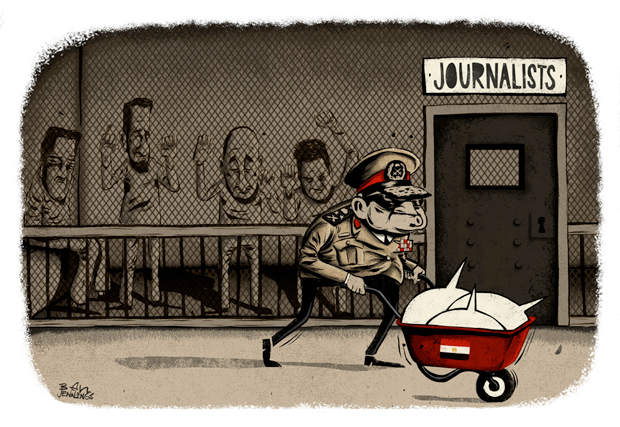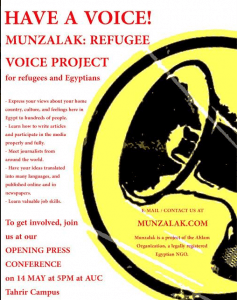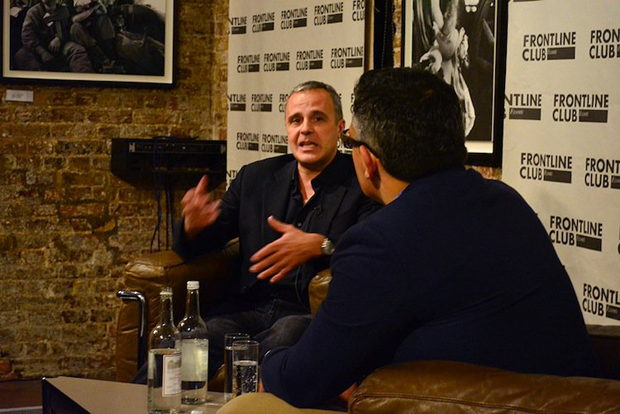3 Jul 2014 | Europe and Central Asia, News, United Kingdom

(Image: Shutterstock)
I’ve occasionally thought it might be fun, even therapeutic, to have an enemies list. I would carry it in my pocket, a single, increasingly ragged B5 ruled sheet, on which I would scribble, with my specially purchased green Bic biro, the names of those who had taken against me, or to whom I had taken against; starting with the Ayatollah Khamenei (long story) and ending, well, never ending.
I could scrawl and scrawl, adding people and organisations: the wine waiter who mysteriously sneered “For you sir, perhaps a glass of Merlot” (I know that’s an insult, I just don’t know why that’s an insult), everyone who stands on the bottom deck of a bus when there are seats upstairs, the Communist Party of Vietnam, and so on, endlessly, ‘til my little scrap of paper was a grand mess of green ink, letters over letters over letters, upside down, vertical, horizontal, furious underlines, multiple exclamation marks, sometimes, just discernible, the word “NO” in capital letters.
It would be good to have the list at hand, to have it under control, I imagine. As long as I’ve got them all written down, and the list is on my person, I won’t be caught off guard. This would not be odd, you agree. It would be an entirely reasonable thing to do in a world where foes stalk us, waiting to mug us, or make us look like mugs.
For politicians, this sense of the entire world waiting for the moment you mess up is amplified, partly because it is a reflection of the truth. Opposition activists will pick up on every word you say, and the slightest slip will be turned into a hilarious/earth-shatteringly dull meme in mere minutes, with earnest young women imploring people to retweet whatever the hell it was that proves you hate nurses/the nuclear family/your party leader, and proves you’re not fit to do XYZ.
And then there’s the “feral beasts” of the press, as Tony Blair famously referred to journalists in 2007 (this was literally worn as a badge of pride by many: the New Statesman’s then political editor had “Feral Beast” badges made, which he handed out to every journalist he met), who you spend your life trying to please while deep down knowing they are willing you to cock up. You really, really can’t win.
Faced with all this, it’s not surprising that politicians and politicos are a little wary of the world. But there is a difference between wariness and paranoia, a difference demonstrated by the reaction to the Sunday Times’s report of a speech delivered recently by Labour’s Jon Cruddas to the left-wing group Compass. An attendee of the publicly advertised meeting passed a recording of Cruddas’s comments to the Sunday Times. The journalist then had the temerity to report on the speech! According to the Telegraph’s Stephen Bush, Cruddas’s next appearance, at the Fabian Society Summer Conference, was “bad tempered” and full of attacks on the “‘herberts’ and ‘muppets’ of Fleet Street who might be listening to his every word or statement in search of a headline”.
Meanwhile Neal Lawson, Compass chairman and Cruddas’s host, wrote a strange article for the Guardian, suggesting, somehow, that Cruddas’s comments were not in the public interest, and somewhat hyperbolically claiming: “The Sunday Times got its cheap splash, but in the process our political culture is diminished, maybe fatally.”
Lawson then really went for it, claiming: “What happens next? We either accept that the Murdoch empire — and maybe others — make toxic yet another level of public life and succeed in shrivelling our body politic still further. Or we make whatever stand we can.
Their goal is not just to destroy Labour or even any alternative to the individualistic, me-first politics of the past 30 years. They want to destroy the possibility of such an alternative. Invading the spaces in which such an alternative is discussed, such as the Compass event, is just a means to an end.”
All this at first reads as merely silly, but there are a few strands in it that are quite worrying. The first is the idea that a journalist reporting on a public meeting (Lawson’s justification for claiming it was “semi-private” was that attendees had to register and there was no press list) is fatally undermining democracy. There is an authoritarian undertone to this: journalists should report on what we allow them to report, not what is of interest. This is also reflected in Lawson’s comment about journalistic practices — “For the papers who do this it’s an easy, cheap hit: no research, no digging, just someone with a smartphone who is willing to sit through boring meetings on a Saturday afternoon” — somehow the story is not a good one because it was gained through day-to-day processes rather than via the Woodward-And-Bernstein routines that are seen as “proper” “investigative” journalism.
Secondly, there is the Murdochophobia which escalates an agenda to a conspiracy: The Sunday Times and Murdoch’s other papers are broadly conservative, it is true, but that’s a long way from having a goal of “destroying Labour” (a party Murdoch’s papers supported for a long time).
The problem with this paranoid mindset is that nobody takes responsibility for their own actions or even their own opinions. The question of whether there is a problem with Labour policy or not, becomes simply evil newspaper versus innocent, naive, poor little politician. It is self-pitying and self-defeating. Either have the debate, or don’t. But don’t complain when reporters report.
This article was posted on July 3, 2014 at indexoncensorship.org
27 Jun 2014 | Egypt, News, Young Writers / Artists Programme

On Monday, three Al Jazeera journalists were sentenced in Egypt to 7 years imprisonment each, to the shock of media outlets and NGOs worldwide. Cartoonist Ben Jennings shares his take on journalism in the country.
Index strongly condemns the jailing of journalists for doing their job.
In light of the sentences, Michelle Betz writes about her own experience of being on trial in Egypt as part of an NGO, Shahira Amin looks at the blow to press freedom in Egypt the trial has had, while Casey Prottas attended the minute’s silence outside BBC Broadcasting House, held exactly 24 hours after the verdict was read.
20 Jun 2014 | Egypt, News, Politics and Society
 It is still hot in the shade of the palm trees and stuccoed buildings on the American University in Cairo’s (AUC) downtown campus. Groups of refugees sit around on wicker chairs.
It is still hot in the shade of the palm trees and stuccoed buildings on the American University in Cairo’s (AUC) downtown campus. Groups of refugees sit around on wicker chairs.
Everyone is here to learn about journalism. Munzalak is a new organization that aims to get refugees living in Egypt involved in the media and in command of their own voice. The name translates to “your comfortable place,” like a home from home – the one you were forced to leave.
Every weekend Munzalak hires out a room at AUC. Refugees are invited to come along and learn the basics of journalism for free. Aurora Ellis, a news editor for an international news agency, runs the workshops with aim of producing “articles that deal with refugee issues and with the refugee experience.”
The ultimate aim is to give refugees a space to voice their experiences. A blog on Munzalak’s website publishes pieces written by refugees (with the option of writing under a pseudonym) while training goes on and – organizers hope – more people join.
Similar initiatives have existed. The Refugee Voice was a newspaper based in Tel Aviv run by African asylum seekers and Israelis inside Israel and founded in April 2011, but is no longer published. Radar, a London-based NGO, also trains local populations in areas around the world (including Sierra Leone, Kenya and India) with the aim of connecting isolated communities.
“We’re being given the opportunity to write about our experiences…I can write about my experiences, and interview other refugees about theirs,” says Edward, a Sudanese refugee who arrived in Cairo earlier this year.
“We have several basic problems – in housing, security, education and health.” He quietly tells stories of life in Egypt; harassment and assault in the streets and pervasive racism (even, he says, from some people who are there to help). “We live a separated life. We are here by force only.”
Ultimately, Edward wants to write a history of the Nuba Mountains, the war-torn area straddling the border between Sudan and South Sudan, where he was born in over 25 years ago. Edward carries a notebook with ideas for this book – scribbled notes of a people and culture disappearing; histories of war and exodus. Edward sees his journalism as self-preservation, telling stories that other people don’t want to be told. He most admires Nuba Reports, a non-profit news source staffed by Sudanese reporters, which aims to break reporting black-spots while humanitarian crises and fighting continues on the ground.
Some activists working alongside refugees see initiatives like this as an important way to break the silence.
“Before June 30, refugees were always neglected in the national media. They were only included [the media] if they were being used as scapegoats,” says Saleh Mohamed from the Refugee Solidarity Movement (RSM) in Cairo. Famous examples include right-wing TV host Tawfik Okasha calling for Egyptians to arrest and attack Syrian and Palestinian refugees on sight. Syrians and Palestinians arrested by security forces have been routinely referred to as “terrorists” by the authorities, a narrative often repeated verbatim by pro-regime newspapers. “Now I think the media wants to keep refugees in the shadows and not talk with them,” Mohamed adds. “You never hear about refugees.”
But Munzalak is not without its risks and challenges. Staying independent but still being able to attract funding and support is one thing. Another is security.
Last Sunday 13 Syrians were sentenced to five years in prison after protesting in March 2012 against Bashar al-Assad. They were charged with illegal assembly and “threatening…security [forces] with danger,” something the defendants all denied, according to state-run newspaper Al-Ahram. A UNHCR official last year had told Syrian refugees to stay away from domestic politics – a warning that could feasibly include journalism as well.
Although historically repressive towards journalists during the rule of Hosni Mubarak, the Supreme Council of the Armed Forces (SCAF) and the Muslim Brotherhood’s Mohamed Morsi, Egypt’s media landscape has taken a significant nosedive since the July coup. Several journalists have been killed in the violence; Mayada Ashraf, a young reporter for Al-Dostour became the latest casualty after she was shot in the head during a protest, allegedly by a police sniper; while reporters remain behind bars and on trial for doing their job.
So is it a good idea to get refugees involved?
Mohamed says that street reporting and visibly working as journalists could put refugees – like Edward – “in danger.” Their legal ability to work also depends on what refugee status they have.
“But otherwise they can talk about themselves rather than waiting for journalists to approach them instead…They definitely need a voice.” But for some refugees, other priorities come first.
Jomana is a 20-year-old Syrian refugee and media studies undergraduate, originally from Aleppo. She visited Munzalak once and liked the idea, but is more concerned about getting a job and paying her way than talking about her experiences – which, like so many Syrian refugees in Egypt nowadays, are harsh. Of almost 184,000 refugees living in Egypt, according to mid-2013 figures from the United Nations Refugee Agency (UNHCR), around 130,000 of that number are Syrians.
“I don’t have enough money to continue my studies so I will have to leave,” she explains plainly. Jomana’s home was bombed out during the war and they fled the country with just their passports, arriving in Cairo over two years ago. Eventually her father went back to Aleppo to try and restart his old factory, but returned to find rubble. He came back to Cairo to economic uncertainty, incitement and political instability. “Other people are going back to Syria and dying there. Those that stay [here] aren’t dying from bombing or from fighting…but from hunger.”
Munzalak might help, but for some refugees, not in the most crucial of ways.
“It means I can express my opinion freely,” Jomana says, “but will I get paid for my opinion?”
This article was published on June 20, 2014 at indexoncensorship.org
21 May 2014 | Magazine

Rafal Rohozinski, co-founder of cyber-research thinktank SecDev Group (Photo: Frontline Club)
What is the future of journalism? The innovation report leaked from the New York Times this week highlights the need for change to keep up with fast-moving technology. How do news gatherers and publishers adapt to the volume of online content produced every day? In Syria, the combined duration of wartime YouTube footage now outweighs the realtime number of hours since the conflict began. Rafal Rohozinski, co-founder of cyber-research thinktank SecDev Group, spoke at London’s Frontline Club on Tuesday about redefining news. Here we round-up five of his key points – affecting everyone from readers to citizen journalists to the world’s biggest media organisations.
“Verification is key”
The Boston bombings were one of the most tweeted about events in history, generating seven million tweets – yet 60% were deemed to include false information. We are now swamped with data, but the successful operators will be the ones that know how to interpret it and validate it. “The expert isn’t the algorithm; it’s the human being in the loop,” says Rohozinski. We will see the rise of the “virtual bureau” – which tap into streams of knowledge coming up from the ground, but will be manned by “super journalists”, who understand the local language, politics, way of life etc. These well-trained individuals are able to work their way around both the data and the subject.
“Focus on one platform at your own peril”
Technology is fickle; it will change. “Imagine,” says Rohozinski, “if the BBC had focused only on MySpace.” Twitter is not the one and only route to the truth. Firstly, because it has a bias towards a particular type of user; secondly, because local platforms can often offer as much – or potentially even more – insight. Weibo in China is one example, but little-known localised platforms also exist in Kazakhstan, Tajikistan … Why are they popular? Because they are more accessible (having been developed for a specific group in their native language) and they are often linked to local telecommunications companies, so they are less expensive to access on mobiles. The internet of the future will cut across more platforms and try to link them.
“Syria is the first war being fought in the full glare of cyberspace”
At start of the Syrian war, there were 14 million mobile-phone users (in a population of 20 million). As people have fled, the number of in-country mobile-phone users has grown; there are now 500,000 more. This has done a great deal to empower citizens, but data can also be manipulated. Thousands of seemingly genuine pro-Assad posts – apparently backed up with pictures of houses and children – turned out to be entirely artificial when analysed by an algorithm. It was more subtle than propaganda; it was created to imply an act of discourse among a community. Twitter didn’t pick up that; field reports wouldn’t pick up on that.
“The social contracts that were formed over decades are now completely up in the air.”
News agencies and intelligence agencies are facing the same problems. Both are trying to answer questions that ultimately depend on people. Both are dependent on cyberspace. Do we use metadata? How much do we reveal? How much do we collect? The Snowden revelations have brought a lot of this to light. Biometric data collection is forcing change in social contracts between individuals and state. The rules are grey and undefined. In Syria, doctors are being arrested, because their phones contain details of gun-shot victims. Journalists and intelligence agencies need to look to new ways to protect their sources.
“Facebook and Google have big ambitions, but they are necessarily realities.”
Although Facebook and Google have been buying drone companies to further their reach, Rohozinski predicts complications: “Ultimately, the internet is based on a physical infrastructure of connectivity. When Facebook says they will use their own fibre optic cables so they aren’t subject to control, they are kind of wrong because at some stage the government will step in and say, ‘You are now a telecommunications company, regulation applies.’ Ambitions for becoming common carriers with a physical embodiment, as opposed to simply a virtual overlay, means they will be subject to much more regulation than they have been in the past.”
Rafal Rohozinski co-developed Psiphon, a software application that allows people in closed societies to access censored information. He has worked across the world, including in the former Soviet Union, the Middle East and Africa.
The next issue of Index On Censorship magazine – out in early June – explores citizen journalism and data-tracking in Syria. Subscribe from just £18 per year and find out about hard-hitting journalism under fire around the world.



 It is still hot in the shade of the palm trees and stuccoed buildings on the American University in Cairo’s (AUC) downtown campus. Groups of refugees sit around on wicker chairs.
It is still hot in the shade of the palm trees and stuccoed buildings on the American University in Cairo’s (AUC) downtown campus. Groups of refugees sit around on wicker chairs.